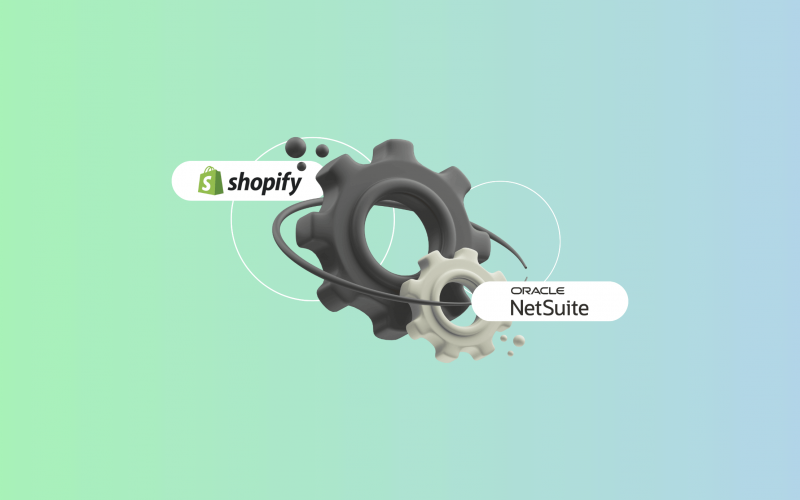When your business relies on accurate financials and seamless operations, manually reconciling Shopify data with NetSuite can slow you down and introduce errors. Using integration software like Synder is the most efficient way to sync Shopify orders, customers, payouts, fees, taxes, shipping, credits, and more, and then reconcile everything cleanly in NetSuite.
Here’s a clear guide tailored for ecommerce businesses.
Common challenges in Shopify NetSuite integration
Before jumping into the solution, look at what ecommerce often struggles with:
- Disjointed data across systems: Shopify captures detailed order data (products, taxes, discounts), but NetSuite needs it structured in a specific way.
- Manual reconciliation of payouts: Shopify payouts through Stripe, PayPal, or Shop Pay don’t line up 1:1 with sales, causing time-consuming matching in NetSuite.
- Missing or inconsistent fees, shipping, and refunds: Without a proper sync, finance teams may miss platform fees or misclassify refunds.
- No native sync for SKU-level reporting: NetSuite reporting becomes inaccurate without syncing SKU-level details from Shopify.
Sounds familiar? Let’s see how to eliminate these issues for good to get accurate records, audit-ready reconciliation, and full compliance built for ecommerce accounting.
Syncing Shopify and reconciling in NetSuite using Synder
To set up a reliable Synder’s Shopify + NetSuite integration, follow these simple steps.
1. Connect Shopify and NetSuite to Synder
Go to Synder and sign up for a 15-day free trial and create an account. Once inside the dashboard, connect your Shopify store and NetSuite account securely. Synder acts as a bridge between the two systems, ensuring smooth and customizable data flow.
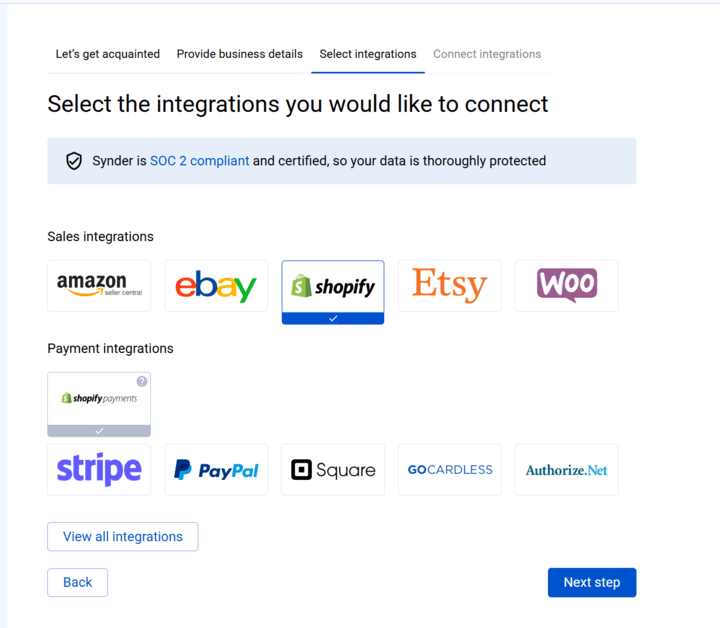
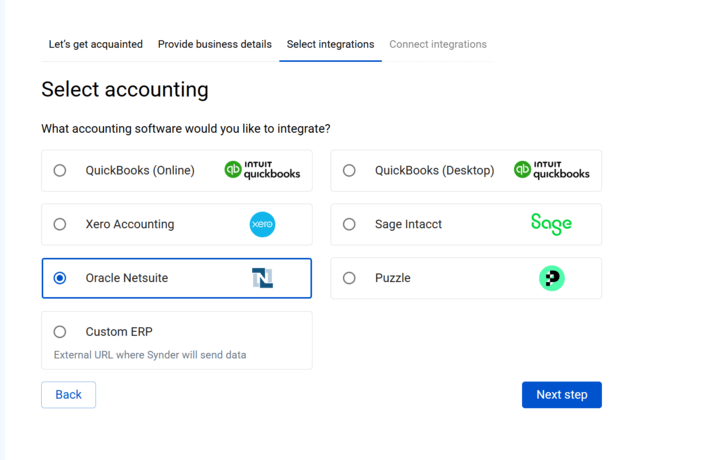
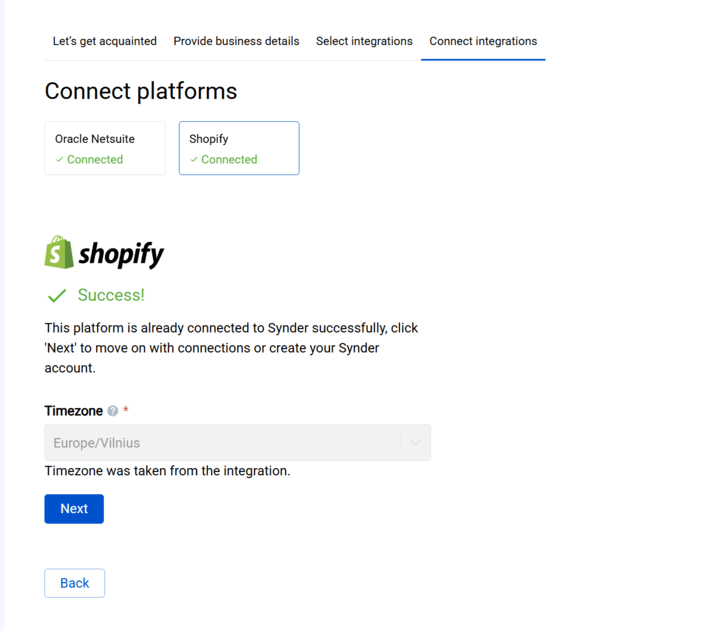
2. Configure your sync settings
Synder syncs your Shopify data as daily summaries, keeping your NetSuite books clear and easy to manage.
Custom settings: Adjust your preferences to ensure the summarized data fits seamlessly into your workflow.
- Consolidated records: Sales, refunds, fees, taxes, shipping income, discounts, and gift cards are rolled into clean daily entries.
- Account mapping: Assign each component to the correct NetSuite account once, and Synder will apply it automatically.
- SKU matching: Link Shopify SKUs to NetSuite items so your summaries still reflect accurate product-level reporting.
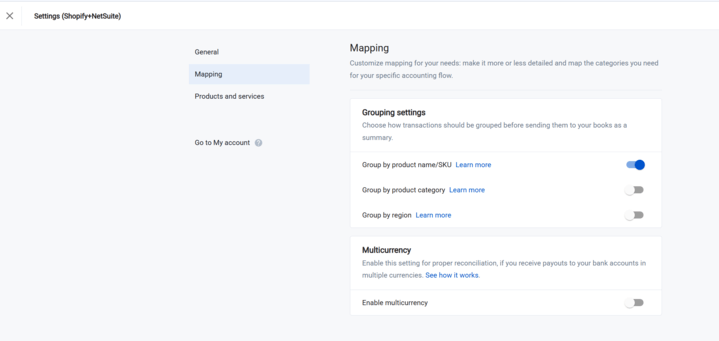
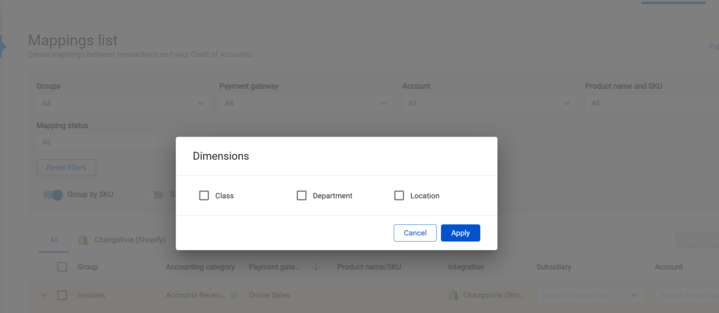
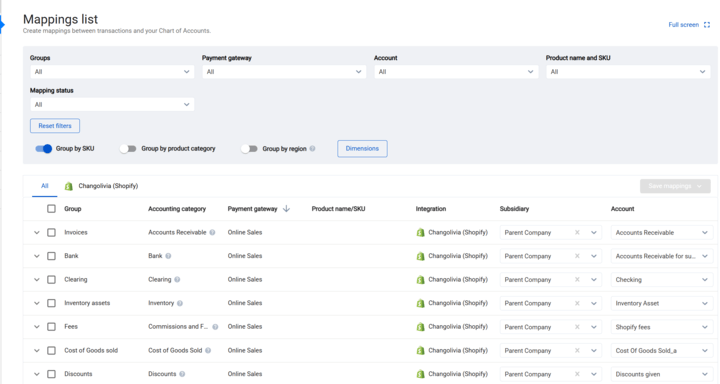
3. Enable Shopify order sync to NetSuite
Now, Synder will start syncing new Shopify orders automatically into your data source right at the moment of import. Based on these imported transactions, Synder generates summaries, which you can configure to be daily, monthly, per payout, or for a custom period.
- Each order includes customer details, line items, discounts, shipping charges, and taxes.
- Orders are categorized in NetSuite according to your mappings.
- Shopify gift cards and discounts are properly recorded as liabilities or reductions, respectively.
4. Sync Shopify payouts and fees
To automate reconciliation, Synder pulls Shopify payouts (including fees and refunds) and matches them with the correct transactions in NetSuite:
- Each payout becomes a bank deposit, detailing the gross sales, platform fees, refunds, and net amount received.
- Fees from Shopify Payments or third-party gateways are auto-categorized.
This eliminates hours of manual reconciliation work.
5. Reconcile Shopify transactions in NetSuite
Once the payouts hit your NetSuite-connected bank account, reconciliation becomes seamless:
- The deposit Synder created matches exactly with what’s in your bank feed.
- No discrepancies, no manual adjustments.
- You can reconcile in a few clicks with complete audit trail support.
Benefits of using Synder for Shopify NetSuite integration
- Zero-discrepancy reconciliation: Match every Shopify order to its payout automatically.
- Smart mapping: Configure tax, fee, shipping, and discount accounts with full control.
- Historical data import: Upload years of Shopify transactions into NetSuite in minutes. Keep in mind that this option may incur a fee.
- Audit-ready books: Clean records that make tax season, audits, or investor reviews painless.
- Multicurrency support: Shopify international sales are synced with accurate exchange rates.
Want to streamline your Shopify–NetSuite integration? Book a free demo and see Synder in action.
FAQ
Can I reconcile Shopify payouts automatically in NetSuite?
Yes. Synder syncs Shopify payout reports and creates matching deposits in NetSuite, aligning them with order-level data for one-click reconciliation.
Can I sync historical Shopify orders and payouts into NetSuite?
Absolutely. Synder supports unlimited historical sync, so you can bring in past orders, fees, and settlements without cutoff dates. Just a heads-up: this option might come with some limits depending on your plan.
Will Shopify discounts and gift cards sync correctly?
Yes. Discounts reduce revenue properly, and gift cards are tracked as liabilities in NetSuite until they’re redeemed.
What happens if a Shopify or NetSuite field doesn’t match?
Synder flags mismatches and provides tools to correct them. You can map custom fields and set fallback rules to ensure smooth syncing.


